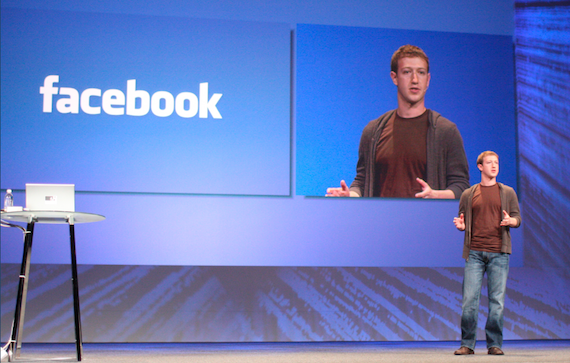
 CEO Mark Zuckerberg says Facebook will boost the sharing of high quality news by allowing its U.S. users to rank which news organizations are most trustworthy to deliver it to their news feed
CEO Mark Zuckerberg says Facebook will boost the sharing of high quality news by allowing its U.S. users to rank which news organizations are most trustworthy to deliver it to their news feed
Publications trusted by a broad cross-section of Facebook users will get priority over those that have low trust ratings.
For Facebook, which has long resisted becoming an arbiter of what’s fact and what’s fiction, the introduction of a trustworthiness score for news outlets represents a major philosophical shift.
Facebook that it planned to prioritize high-quality news on the social network by allowing its users to rank news sources that they see as the most credible and trustworthy.
The company was dogged by criticism in late 2016 after the presidential election that too many false stories attacking Hillary Clinton had spread on its site, that way affecting the election’s outcome. Last year, Facebook also acknowledged that Russian agents had used the site to spread divisive and polarizing ads and posts
Facebook announced Friday it will ask its two billion users to rank their trust in news sources, in its latest attempt to combat the spread of misinformation on the social network.
In a Facebook post, co-founder and chief executive Mark Zuckerberg said the network would seek to “prioritize news that is trustworthy, informative, and local.”
“There’s too much sensationalism, misinformation and polarization in the world today,” “Social media enables people to spread information faster than ever before, and if we don’t specifically tackle these problems, then we end up amplifying them.”
The role Facebook plays in what news people consume has dramatically expanded in recent years. About 45% of U.S. adults get their news there, according to a Pew Research Center survey.
Experimenting with what news gets shared on Facebook can have unexpected and unintended consequences. And polling users on what news sources are trustworthy could favor partisan outlets that reflect the personal beliefs of users over the more objective efforts of well-known publications.
The change comes as the online giant seeks to address charges that it has failed — along with Google and Twitter — to prevent the spread of bogus news, most strikingly ahead of the 2016 U.S. presidential election.
Shared by CEO Mark Zuckerberg in a Facebook post this afternoon, the second major change after cutting out news and promoted content in its efforts to “refocus the system,” is to “make sure the news you see, while less overall, is high quality.”
Zuckerberg says that there is too much misinformation and sensationalism and that if it isn’t addressed, social media like Facebook will inflate these problems.
Zuckerberg hopes that these latest two News Feed changes will create more “meaningful interactions” and help people feel their time on Facebook is “well spent.”
“There’s too much sensationalism, misinformation and polarization in the world today,” Zuckerberg writes. “That’s why it’s important that News Feed promotes high quality news that helps build a sense of common ground.”
“This would be positive for consumers, as well as help to address ‘fake news’ issues.”
The group will watch how the Facebook ranking changes are implemented and whether they deliver on the social network’s stated goals, according to Chavern.
Facebook has come under pressure to address criticism that its 2bn users are being negatively affected by the time they spend on its website and app, and evidence that its platform too was manipulated by Russian propagandists during the 2016 US election.
The Facebook changes announced over the past week will have a widespread impact on publishers, with whom the company already has fraught relationships. News outlets have become increasingly reliant on Facebook for traffic and revenue as the social network, along with Google, have hoovered up digital advertising spending.
Facebook wants to make sure its users aren’t duped by stories from untrustworthy news publications. So it’s asking users which news publications they trust.
The company decided to use community input to rank news sources in an attempt to be as objective as possible, Zuckerberg said.
Facebook says it is also increasing its focus on local news in 2018, and it adding a section specifically to read about events and stories nearb.

